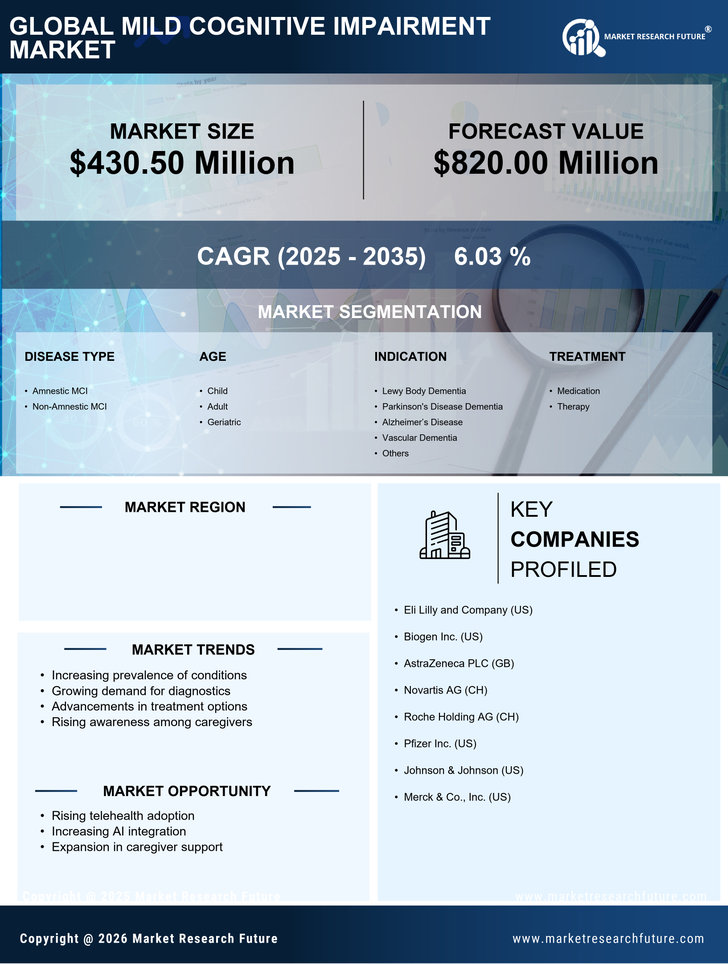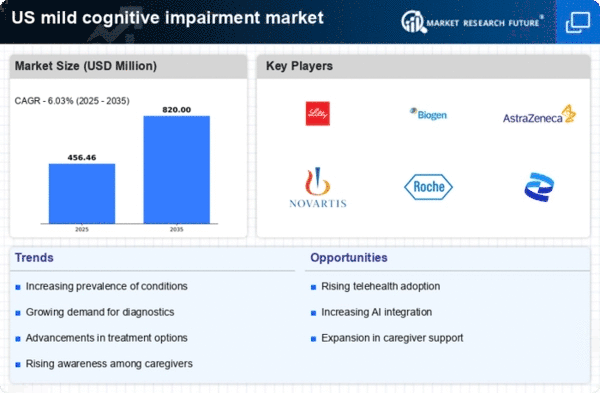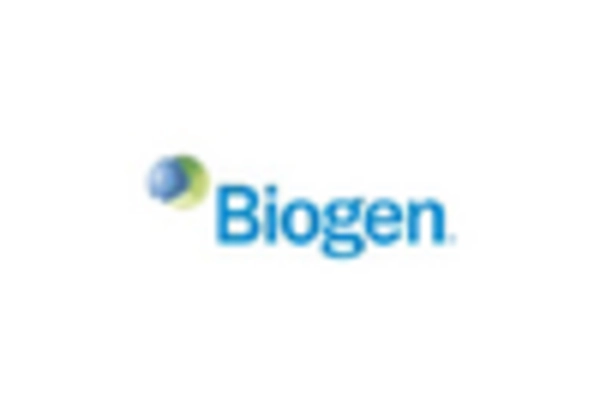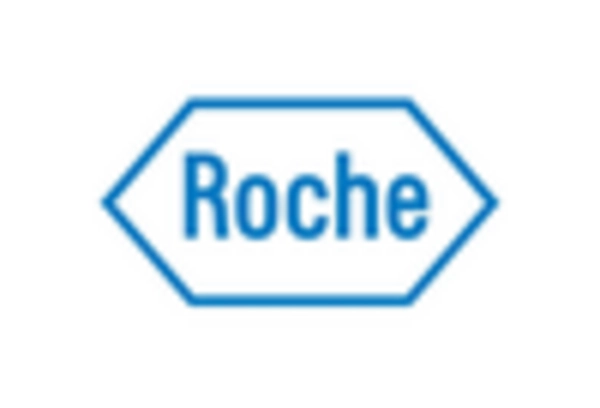Rising Awareness and Education
There is a growing awareness regarding cognitive health among the general public and healthcare professionals, which is influencing the mild cognitive-impairment market. Educational campaigns and initiatives by various organizations aim to inform individuals about the signs and symptoms of cognitive decline. This heightened awareness encourages early diagnosis and intervention, which is crucial for managing mild cognitive impairment effectively. Surveys indicate that nearly 60% of adults are now more informed about cognitive health than they were a decade ago. As awareness continues to spread, it is anticipated that more individuals will seek medical advice, leading to an increase in the demand for diagnostic services and treatment options within the mild cognitive-impairment market.
Integration of Telehealth Services
The integration of telehealth services into the healthcare system is transforming the mild cognitive-impairment market. Telehealth offers a convenient platform for patients to access cognitive assessments and consultations from the comfort of their homes. This is particularly beneficial for older adults who may face mobility challenges or reside in remote areas. Recent data indicates that telehealth usage has surged, with a reported increase of over 50% in virtual consultations for cognitive health assessments. As telehealth continues to gain traction, it is expected to enhance patient engagement and adherence to treatment plans, ultimately driving growth in the mild cognitive-impairment market.
Policy Changes and Healthcare Funding
Recent policy changes and increased healthcare funding are shaping the landscape of the mild cognitive-impairment market. Legislative efforts aimed at improving mental health services have led to enhanced coverage for cognitive assessments and treatments. The Centers for Medicare & Medicaid Services (CMS) has expanded reimbursement policies for cognitive health services, making them more accessible to patients. This shift is likely to encourage more individuals to seek diagnosis and treatment for mild cognitive impairment, thereby increasing market demand. Furthermore, the allocation of federal and state resources towards cognitive health initiatives is expected to bolster research and development, further stimulating growth in the mild cognitive-impairment market.
Advancements in Research and Development
Ongoing research and development efforts in the field of neurology and cognitive health are propelling the mild cognitive-impairment market forward. Innovative studies are exploring new biomarkers and therapeutic approaches that could enhance the understanding and management of cognitive impairments. For instance, recent findings suggest that certain lifestyle interventions may reduce the risk of progression from mild cognitive impairment to more severe forms of dementia. The National Institutes of Health (NIH) has allocated substantial funding towards research initiatives aimed at understanding the underlying mechanisms of cognitive decline. This investment in research not only fosters innovation but also encourages pharmaceutical companies to develop new treatments, thereby expanding the mild cognitive-impairment market.
Aging Population and Increased Prevalence
The aging population in the United States is a primary driver of the mild cognitive-impairment market. As individuals age, the risk of developing cognitive impairments increases significantly. Current estimates suggest that approximately 15-20% of individuals aged 65 and older experience mild cognitive impairment. This demographic shift is expected to continue, with projections indicating that by 2030, around 20% of the U.S. population will be over 65 years old. Consequently, the demand for diagnostic tools and therapeutic interventions in the mild cognitive-impairment market is likely to rise, as healthcare providers seek to address the needs of this growing population. The implications for healthcare systems are profound, as they will need to adapt to the increasing prevalence of cognitive disorders, thereby driving innovation and investment in the mild cognitive-impairment market.

















